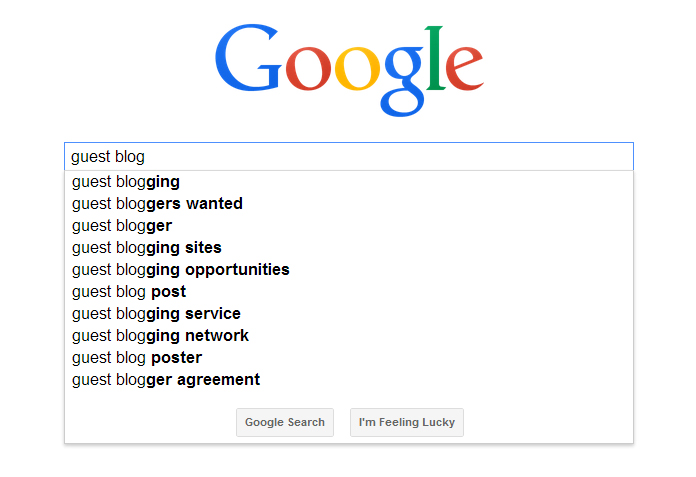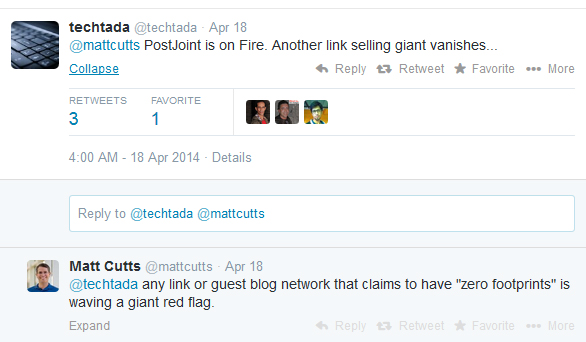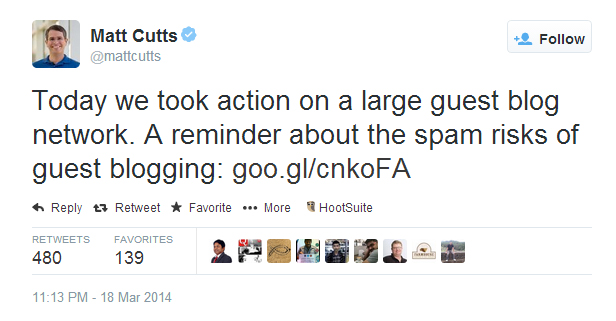Google’s Crusade on Guest Blogging Networks – Righting the Wrongs, or?
Google is taking massive actions against guest blogging and reducing spam linking and artificial backlinking. One of the latest victims to struggle with Google’s attack was PostJoint. Although the company claims that there are no traces or evidence that Google could use for penalizing them, it seems that a lot of bloggers have been punished.

While it may seem that this is an unjust war waged by Google, they are trying to reduce unnatural backlinking and to avoid spam link abuse by guest blogging networks. According to PostJoint, all of this might just be a big misunderstanding, as Google does not have any “footprints” to follow for the unnatural inbound and outbound links generated.
MyBlogGuest was the first on the list
Matt Cutts, Head of Google webspam, announced that they penalized the first blogging platform to come, just a month ago. The reason for this is that MyBlogGuest seemed to have a large number of invalid links. The popular belief is that MyBlogGuest is not really a blogging community, that it was more like an open community where the policy on link posting had a very broad definition.
However, because most people ignored this community being a blogging network, a lot of agencies and writers used it to sell links openly; and it was just a matter of time when someone like Google would notice the abuse.
Google’s reaction is not because they want guest blogging to stop all together; they just wish to lessen harmful links and to make sure that the links used are safe and trusted. Matt Cutts also believes that by punishing the bloggers, not the blogs, people will start to guest blog smartly and create links that are worth of showing up in Google’s organic search engine.
Guest blogging
The aim of Google is to get viable signals from the links generated via guest blogging. They wish to cut down on spamming and to encourage bloggers to create more natural and viable links inside their content.
Creating content that is easily analyzable will give Google the opportunity to actually help those blogs and bloggers and to root out the spam from successful links. Furthermore, one of the top priorities is to endorse referral traffic and to make it more accessible to the new audience.
Guest blogging is, and will be, a unique way to promote and generate an audience. However, the way it is working now is just too spammy and it generates more trouble than good. One of the advices that Matt Cutts shared was: “In general, I wouldn’t recommend accepting a guest blog post unless you are willing to vouch for someone personally or know them well. Likewise, I wouldn’t recommend relying on guest posting, guest blogging sites, or guest blogging, SEO as a link building strategy.” SEO is an art that keeps progressing; this is what has happened so far.
Is no one safe?
With Google going on a rampage, whether it is with a just cause or not, the question still remains: who will vouch for all the links? Imagine that a highly respected and prestigious blog network does leave a guest blog post, with links on your blog, with signatures and credentials, will it trigger an alarm at Google?
On one hand, removing spam and reducing spam guest blogging is a great idea, but on the other hand, how will it be possible to decide what is spam and what is not. Will only major companies have the privileges of guest blogging without the fear of their links being removed or will new bloggers have an equal posting chance as the others? The answers are still unknown, Google’s policies are evolving on weekly bases, and the struggle is just beginning, and you wouldn’t like to find yourself on a bad side with this conglomerate.
Trust the people you work with, allow only valuable external links on your blog that provide valid information on trusted sources, and keep up with news like this one – and you cannot go wrong.






You must be logged in to post a comment Login